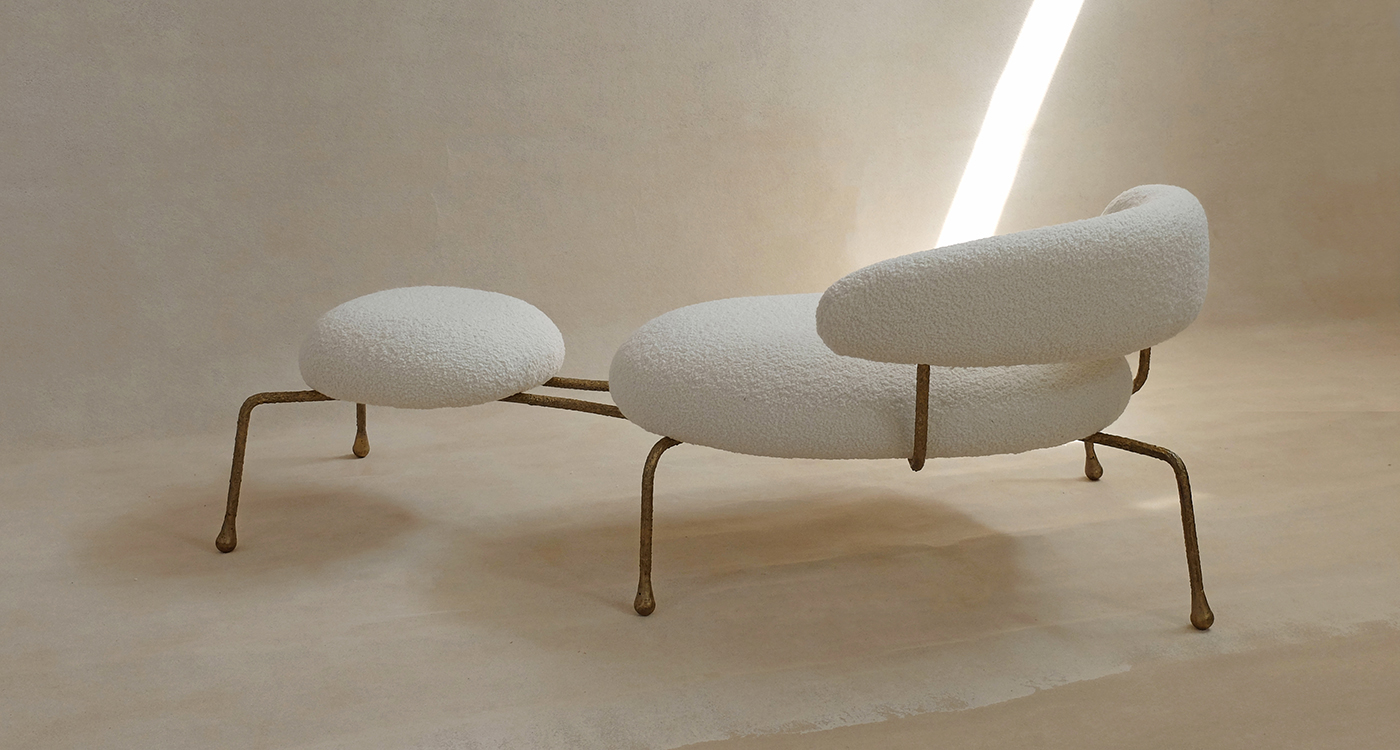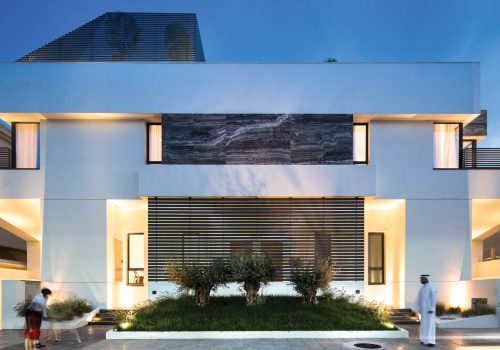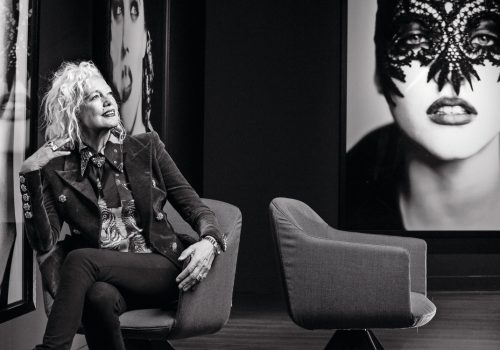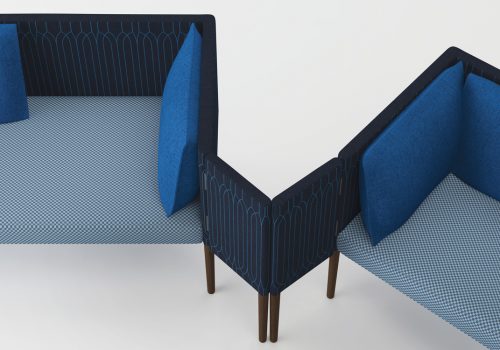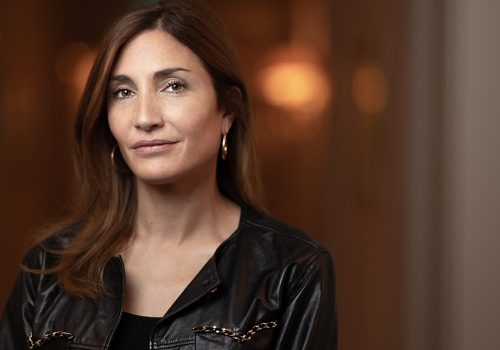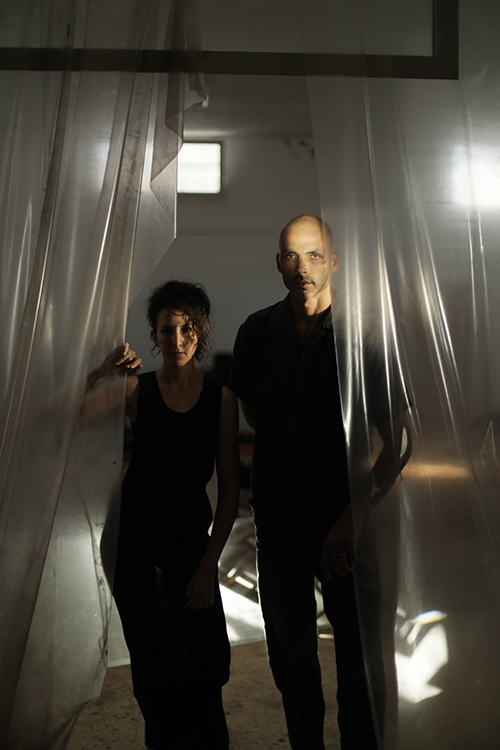
TOP: The 5,700 USD Reveur I meridian, which features two seats with soft, rounded shapes offering a pleasant interaction. The idea behind this piece is to strike a balance between solid and linear, soft and rough, supple and rigid. ABOVE: Partners in work and life, Yasmine Sfar and Mehdi Kebaier stand side by side in their studio in Tunis.
Yasmine Sfar and Mehdi Kebaier are the creative duo behind Altin Studio. They aptly named their brand after the Arabic word ‘Al-Tin’ meaning earth (or clay) as a means to reflect their philosophy of returning to the soil and to the traditional crafts of their native country. Their debut collection Orbite (unveiled at the Maison & Objet Fair in Paris last September and then showcased again at THEMA Paris in October) comprises eight exquisite sculptural furniture and lighting pieces. Interestingly, the collection focusses on four primary materials – clay, wood, metal, and rush – to evoke a sense of organic minimalism (and all are commonly used in the traditional crafts of Tunisia).
Nevertheless, while Altin Studio uses materials and techniques that evince the quality of Tunisian artisanal crafts, they also bestow each piece with a unique and contemporary twist that masterfully bears their signature style. Take for example the ‘Premiers Pas’ floor lamp using Sejnane clay (from the Bizerte governorate north-west of Tunis, with its Berber pottery traditions that date back 3,000 years); the ceramic lampshade bears the fire marks of a kiln firing while the metal base reveals details of fusion and aggregation, giving the functional item a transformative identity. Another piece using clay and metal is the celestial light sculpture ‘Grande Conjonction.’ “This particular piece was designed to depict a kind of landscape, a sky in which astral forms evolve,” explains Yasmine, who speaks to us from her atelier in Tunis. “It is also enriched by various metal working techniques.”
In the same collection you have the furniture pieces made of local palm wood, which of course is not a wood per se but rather a fibrous material that’s more usually split into strips and turned into rattan furniture. But, at Altin they have managed to hand-carve palm stems and then polish them to transform them into the ‘Mer et Cratère’ table as well as the ‘Petite Ourse’ seat, which are striking pieces that would effortlessly elevate any modern living space. Yasmine reveals they achieve this result by first hand-cutting the excess material from the trunk, before then shaping it rudimentarily. Then, through manual chiselling, they refine the form before meticulously sanding it and oiling it multiple times. This method enhances the natural beauty of the palm tree, while also revealing intricate patterns reminiscent of pointillism within the fibrous grain.
Equally gorgeous is ‘Ganymede,’ a cabinet made of woven sea rush under a metal frame. Sea rush, or ‘smar’ as it’s called there, is an important local artisanal material that’s collected in the marshes off the Mediterranean in the north of the country before being sorted, dried and ultimately woven on a loom.
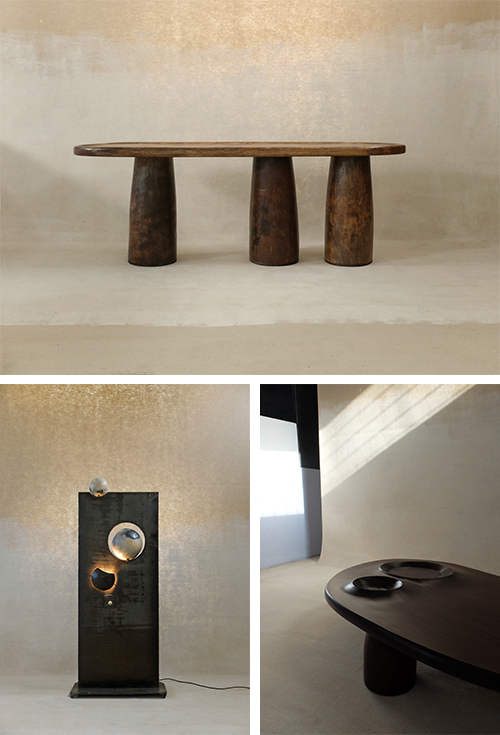
TOP: The ‘Arche’ is a 2.2-metre-long, 5,800 USD hand-carved palm wood console made from the stems of a palm tree. BELOW LEFT: The 1.7-metre-high, 7,800 USD ‘Grande Conjonction’ light sculpture. BELOW RIGHT: The 5,650 USD ‘Mer et Cratère’ table.
Apparently, before they joined forces at Altin Studio last year, Yasmine and Mehdi both worked extensively in Paris, but in different fields; she as an interior designer and Mehdi as a contractor. Their respective backgrounds have brought different strengths to their current work, as Yasmine elaborates. “We have very different approaches, which serve as a great addition to our process. Mehdi brings his civil engineering background together with his intuition and sensibility to shapes, forms, and colours. I start with an intention, a scenario to explore, and I let my mind wander into daydreams in which I model a piece in my mind like a sculpture. During these daydreams, I’m constantly thinking about the notions of authenticity, proportion and balance between the different elements and materials.”
Yet it’s also Tunisia’s rich culture that feeds their ideas and creations, as Yasmine is proud to point out. “Tunisia has quite a multicultural influence. Our country may seem small compared to our North African neighbours, but it’s filled with diverse landscapes. The Saharan desert in the south and the green forests and lakes in the north serve as a connection to the land, which has been marked by the presence of various civilisations such as the Amazigh, Phoenicians, and Romans. This rich cultural heritage acts as a breeding ground for our mission of reviving the craft traditions that have been carried by history. After all, Tunisia has long been a muse for artists, including figures like Paul Klee, nearly all of whom created their best work while residing in our country,” she continues. “We draw upon this legacy of artistic inspiration, transferring its soul into our creations alongside the diverse materials and ancestral craftsmanship techniques that characterise our work.”
Altin Studio has already built a very strong partnership with many of Tunisia’s artisans and collaborate with a network of specialised craftspeople who act as satellites in their respective regions. “At the heart of this network lies our atelier where we centralise all the experiments conducted in the field and develop them further within these walls, depending on the direction we intend to pursue for each project.”
Currently, Yasmin and Mehdi are busy promoting the Orbite collection, but they are also in the preliminary stages of designing and producing their next collection, which they plan to unveil in 2025.
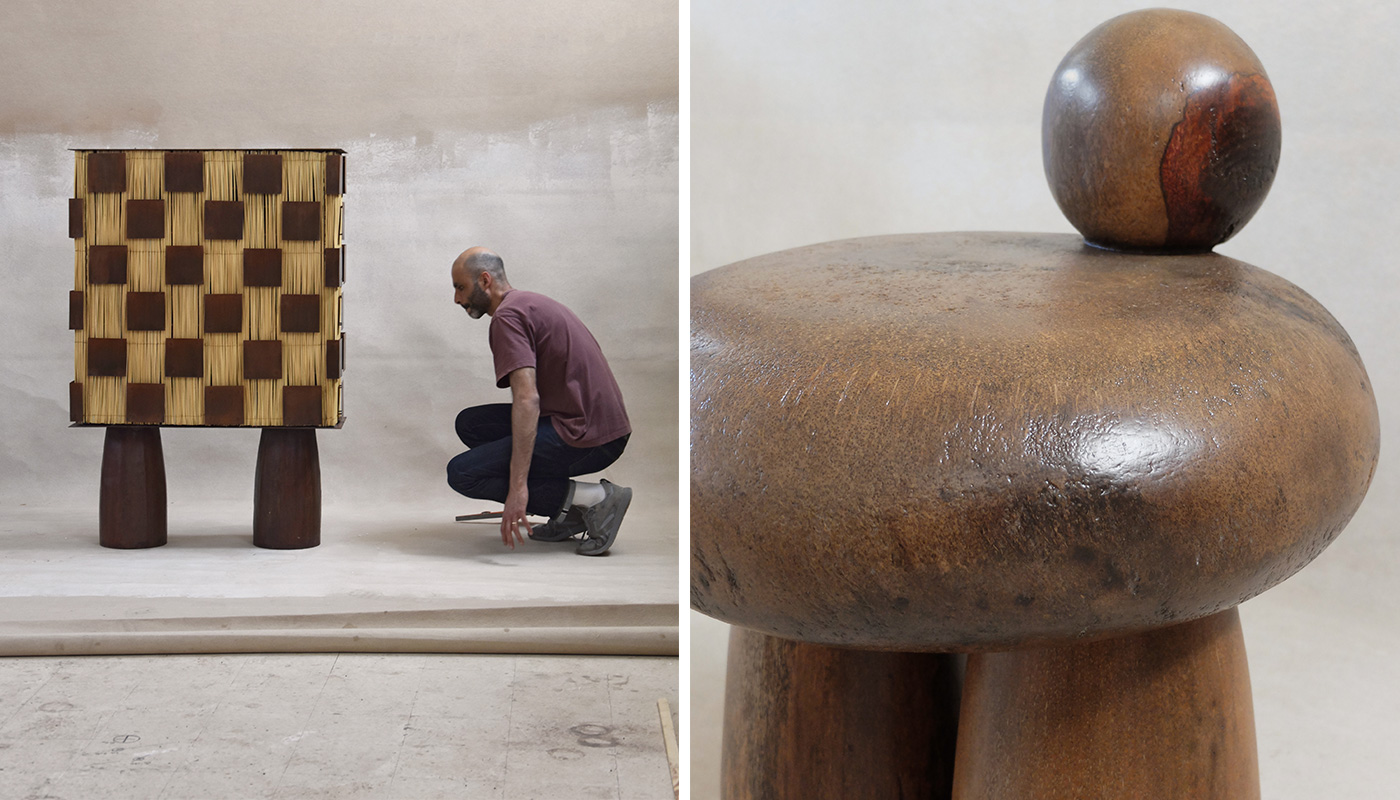
ABOVE LEFT: Mehdi inspects the 8,350 USD ‘Ganymede’ console, which combines metal, rush and palm wood. ABOVE RIGHT: The 2,700 USD palm wood ‘Petite Ourse’ stool.


